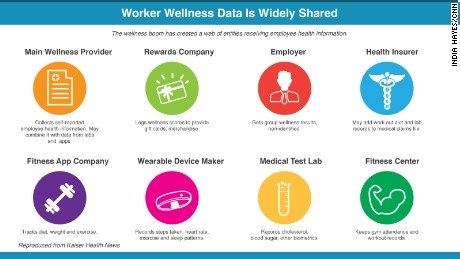This article is for those who can not work without being distracted and bring what has been started to the end, facing laziness and lack of self-organization. Maybe you are a freelancer, work independently and lack discipline. Or you work in the office on different projects and often do not keep up with the deadline due to the fact that you don’t manage to do everything on time. Or you just do not go out for a long time to do some work because of laziness and the desire to distract.
Then this article is for you. I hope my advice will help you. Here i will tell how to make yourself work and more efficient to do the work.

This post is dedicated to the first anniversary of the blog! Over the year, attendance has grown from zero to 3,500 people per day! I think this is a good result. But well, we will be more distracted by this and return to the topic of the article.
Discipline and self-organization
Before, I was always fascinated by organized and disciplined people who can concentrate on working when it needs to be done. And they do not need a boss for this, who will adjust and control them. They do not need any special office working environment: they can work at home and at the same time resist the temptations to lie down and be lazy. They are completely independent and autonomous. They are able to plan, set goals and achieve these goals.
My admiration for these people was mixed with envy, for the reason that I myself lacked discipline and needed it very much. Work always fell out of my hands, I was constantly distracted by something, I was late with the deadlines, and some tasks remained unfulfilled. I didn’t have any schedule and plan, I could start doing something only when they were seriously tightening deadlines or someone would push me. It is clear that the quality and efficiency of such work in such conditions always left much to be desired.
But now a lot has changed. Every day I’m working on filling and setting up two sites (this blog and its English-language counterpart), plus doing my main job. (I won’t be particularly soul-wise and I’ll honestly say that I’m not very busy at my main job so far, but I work a lot nonetheless, including on my own projects - the blog takes me a lot time.) I can work at home, in the office - it does not matter. I learned how to bring things to a close, work methodically and not be distracted by external stimuli. I will tell you about the principles that helped me in this.
Write for this blog
Writing articles for the site is, of course, a pleasure. But on the other hand, it is quite hard work. My main job and technical support for this site are much less time consuming than writing structured text. Posts of this blog require me to great mental effort, concentration and perseverance. I am not pouring a disorderly stream of consciousness onto this site. Before my thoughts appear on the pages of this blog, they need to be brushed, streamlined, organically woven into the overall structure and presented in the form of a ready-made, understandable and adapted text for readers.
After the article is over, I feel a strong moral satisfaction, as if I have completed a difficult job, which is an exercise without sports. What helps me to work on the main work and, throughout the whole year, to supply readers with rather lengthy articles? Let's talk about the principles that formed the basis of my work discipline. These principles will help you.
Principle 1 - Set temporary work standards
Without a ready-made plan, it's hard to force yourself to work. Therefore, you must learn to plan and stick to your plan. What is the approach to business planning to use?
I tried two different approaches:
- Make a plan for the amount of work for a certain time period. For example: I have to write 3,000 words a day and until I do this, I will not do anything else.
- The second is to follow a fixed temporary standard. For example: I work 4 hours, with three breaks of 10 minutes, then I rest for an hour and work another 1.5 hours. And no matter how much work I have done during this time.
I was convinced that the second approach is much more reasonable and effective than the first, now I will explain why:
Quality of work: if one is seeking to complete the work as quickly as possible, then quality may suffer from it. If a person is tied to the implementation of a certain amount, and not to work on time, then there is no direct goal to do the work. But, anyway, this man unconsciously seeks to finish it quickly.
When I set myself standards like 3000 words per day, I wanted to “get to the finish line” rather, so I didn’t make long pauses for thinking about what I would write in a few paragraphs. This is not very well reflected in the quality of work: then you had to redo it.
I write different articles at different speeds, depending on my current state and the content of the article (for example, I wrote an article about alcohol rather quickly, despite the volume, and I can write some other text longer). Therefore, I may not have enough 4-5 hours to write how much I want.
Then I get tired, but I still need to work and fulfill the plan. If I am tired, even my favorite activity can turn into torment for me. Then I do everything more slowly and through force, which also negatively affects the quality of work and leads to even more exhaustion.
Speed of work: in my opinion, if a person does not set himself a time limit and does not strive to do something in a certain short time, then he does the work with his natural speed while maintaining the proper quality of this work, provided that he doesn’t matter what not distracted. You can define this speed transport term "cruising speed".
For example, if I plan to write for 4 hours, then I do not hurry much. But at the same time, it cannot be said that because of this, the work goes much slower. I am still interested in the fact that the work must be done and therefore I do it at a normal speed, I just do not hurry anywhere. Perhaps, in such a measured rhythm, things are moving a little slower than in a hurry and in an effort to finish as early as possible, but, on the other hand, the quality does not suffer and fatigue decreases.
Imagine you are flying in an airplane. This huge ship, of course, can turn on engines at full thrust (in flight at cruising speed, engines, passenger aircraft, work at about 50% of its power, if I'm not mistaken) and try to reach the destination before the planned arrival time. But this will lead to not optimal fuel consumption: a lot of fuel will be burned. And, in addition, the pilot risks the safety of passengers when it is beyond normal flight.
If the plane moves through the air in its normal mode, at cruising speed, the fuel costs will be minimal and travel conditions will be the safest for passengers. Eventually he will reach his destination anyway.
I believe that it is better to work with its natural speed for a fixed time interval, without rushing or distracting anywhere. Still, you will reach your goal, it will not leave you anywhere. Simply you will use your resources more efficiently.
It will be better if you combine the two approaches described above in your work planning. Work a fixed time interval, but at the same time, keep in mind the amount of the desired amount of work. Always look at how much you finally managed to do. But this factor, I repeat, should not play a decisive role.
I give an example from my practice: I worked 5 hours today, but I wrote only 700 words. It is very slow, what is the matter? I thought about the article for a long time, rewrote several paragraphs, then interrupted me. So, I could not write it more today. So everything is fine, and I can finish on this.
But it could have been different, I wrote so little, because I myself was constantly distracted by all sorts of nonsense. If this is so, then tomorrow I will try to keep to the schedule more strictly, so that work progresses faster.
Principle 2 - Start with the most difficult tasks.
If you have the opportunity to perform your work tasks in any sequence, then start with what requires maximum effort. I start writing articles in the morning, and then I do all the other work on the blog: the technical part, promotion, communication, etc. There is no speech that I write articles tired. But correct the site code, if I'm a little tired, I can.
Principle 3 - Don't be distracted!
This is perhaps the most important rule that can be read here. Guided by principle 1, schedule a time interval (for example, 3 hours) during which you will work with rest breaks. Close ICQ, Skype, social networks and the Internet or use them only for business purposes.
First, you can get carried away by some sudden activity and forget about work. I think that everyone faced such a situation when they wanted to get in touch for a moment to read the message, and this minute stretched out in a few hours of wandering around the sites on the Internet.
Secondly, when you are distracted, the effectiveness of your activity decreases dramatically, since, on returning to work, you need to practically re-immerse yourself in work.
Make it a rule that you should not engage in any side activities until the time runs out or the time for a break comes. It is difficult to adhere to this principle, but it is necessary to strive for this.
As Neil Fiore advises in her book, the psychology of personal effectiveness, if you want to get distracted and engage in some kind of nonsense, for example, go to your VKontakte profile, before doing this, take 10 slow breaths and exhalations. This will help you make a sensible decision and remember that work will not be done faster if you are constantly distracted.
Principle 4 - If the work does not go - do nothing
Nothing happens? Are you at a dead end? Tired of working? But you have not completed the plan? Rest, relax. Relaxing does not mean trying to check email or watch updates on social networks. Just move your chair away from the monitor (assuming you are working at the computer, of course) and relax. Try to sit like that for a few minutes. Remember, no side effects until you have completed the time plan!
Therefore, sit and keep in your head the idea that you can’t do anything other than work, because you gave yourself a promise to work for several hours. After some time, you may come up with some thoughts that will lead you out of the impasse in your work. Out of boredom and inaction, your hands will reach for the keyboard themselves and continue working.
If you have no choice but to work, then your brain will automatically return to this activity, if you give it some time to rest. This rule helps me a lot. Often, I am tempted to quit and stop everything. This especially happens in those moments when something long does not come out for me, for example, to formulate some thought.
Then I throw back my head, relax, and the thought itself comes to me. And if it does not, then I find other solutions, for example, focus on another piece of work, and come back to this later.
Another possible solution to such situations is to move to less stressful work. If I’m completely bored with writing an article, I’m starting, for example, to dig into the code of the site, or answer readers ’questions, so as not to waste time. I can use this time in a different way: lie back in a chair and think about what the next article will be about.
In short, if you set a plan to work for at least 5 hours, then use it all the time with benefits for work, even if you do not occupy the entire time period of your main activity.
If I don’t manage to concentrate at all and any thoughts come to me, but not just thoughts about work, I don’t try to force myself to concentrate, I just relax, watch and wait. After some time, all extraneous thoughts leave my mind and I can again concentrate on work. This is similar to the movement of a ball in a funnel: at first it rushes wildly from edge to edge in this space, but then, under the action of gravity, it necessarily descends into a narrow tube at the bottom of the funnel.
The main thing at this time is not interrupted by something else, just sit and wait.
But if you are already very tired, then you do not need to bring yourself to exhaustion unless absolutely necessary, even if you have not fulfilled the plan! If I’m really tired, I’m finishing work and can be a fool, relax. If the body is tired, I give it a rest. But to get tired you need to work.
I will add that during the scheduled break in work, it is better to give your head a rest than to surf the Internet. Go out for a walk or just sit back in an armchair, then you better relax and do not risk getting bogged down in some meaningless activity.
Principle 5 - Maintain order in the workplace.
External order reflects internal order and vice versa. It is very difficult to collect thoughts and work at a table littered with all sorts of rubbish. Clear your workspace, not only physical, but also virtual: restore order on your computer, delete unnecessary files, scatter everything in folders, instead of dumping into a heap.
Principle 6 - Drink less coffee!
I know that it sounds very strange, but the lack of a habit of drinking daily coffee increases efficiency, increases concentration and allows you to set priorities correctly. You can read more about this in my article on how to stop drinking coffee.
Principle 7 - Increase Self-Discipline
It is difficult to force yourself to do something if you have poorly developed willpower. In my article on how to develop willpower and self-discipline, I gave some tips on how to achieve this.
The more developed your will, the easier it is to step over laziness, inaction and control the desires of your body (sleep, eat, play the fool).
Conclusion - why didn't I write anything about motivation?
I have listed the basic principles that help me in my main work and in side activities. I did not touch on motivation, although articles of this kind often talk about how important motivation is without which any work turns into anguish.
Motivation is nice, but I prefer not to depend on it, because this is a transitory thing: now it is, then it is not. It is impossible to feed her constantly with fire, so that work always brings pleasure. You will always be confronted with such situations when you have to do something through force, and this is normal.
I love to help people and write useful articles, I place great plans on this site and see my future work in work on it. Of course, this is a huge incentive and motivation. But, nevertheless, this desire can not warm up the working enthusiasm of me every day and every minute. When I need to work, I constantly struggle with my desires to play the fool, listen to music or sit on the Internet.
Enthusiasm is a temporary thing and its appearance does not always depend on us. Some days work is in full swing, others do not want to do anything. But will power is not a passing thing and we can manage it! I prefer to rely on something permanent and something that I myself can influence, namely, on my own will, and not on external stimulus! It is simply safer. Therefore, I do not write about motivation.
Remember, the hardest thing is to get started. But one has only to start working, to overcome the initial braking moment of inertia, and the work will boil, unwind like a flywheel!
If you do not see any incentive and goal in your work, then change your occupation and look for your goal. But this will be the topic of a separate article.



